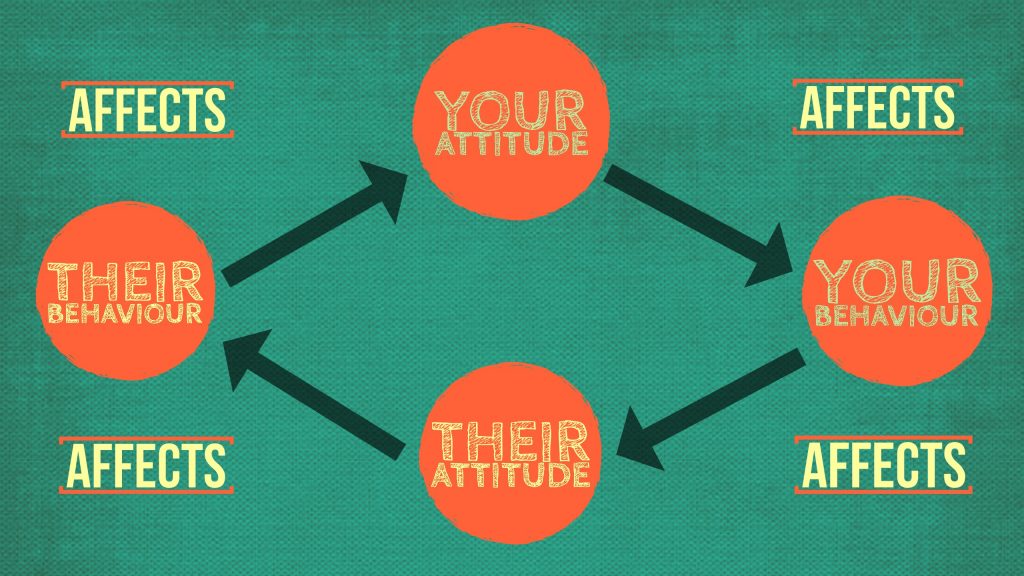Emotional Contagion: When your emotions and behaviour directly affect the emotions and behaviour of someone else
Put yourself in the shoes of the recruiter. Whether it is at the cabin crew assessment day with several hundred candidates present or at the final interview with just you and her. There’s going to be a fairly high chance that just like you, the recruiter is nervous.
Nervous not because they are worried about their own performance – but because of yours. They’ve done countless open days and interviews. They know what to expect and they want to get the right candidates for the job.
The Recruiter Can Sense Negative Emotions
So their biggest fear is going to be that you fail. That they haven’t chosen the right person. This can put a recruiter in a negative mindset even if they don’t recognise it themselves.
And that negative mindset could unconsciously rub off on you – creating a downward spiral of negative emotional contagion. The result is sure: failure.
The problem in this situation is that humans are incredibly attuned to the emotions of others around them. Whether it be fear, stress or nervousness, the recruiter will pick up on these emotions very quickly.
And once they’ve sniffed out those negative emotions they’ll be unconsciously looking for more negative behaviour. It’s what’s referred to as ‘confirmation bias’. Without realising it, the recruiter will pick apart everything you say and how you act in order to confirm their initial negative assessment.
The Batari Box
The situation only gets worse. Your attitude is a natural factor in the behaviour you display. The recruiter will notice even the tiniest cues you give out, which is turn affects their attitude and subsequently, their behaviour. Before you know it, their behaviour is directly affecting your attitude.
It’s what known as the ‘Batari Box’ and if left unchecked it can reinforce bad behaviour and make a negative attitude even worse.

But projecting the right attitude and emotions from the very outset can have a very positive impact on your chances of success. The recruiter will unconsciously pick up on these good vibes. Suddenly, the confirmation bias that has been working against you is your best friend. You can’t lose any time in presenting yourself in the best possible light.
Project the Right Emotions
When we’re feeling positive and happy we generally smile, laugh, engage openly with others and look at ease.
This is by no means an easy task at your cabin crew assessment day or final interview. It’s only natural to feel nervous but its also important to put yourself in the right frame of mind.
Projecting the right emotions is good for everyone. Not only will it put you at ease but also the other candidates and the recruiter.
Be yourself – but don’t use that as an excuse to let your nerves take over your warm, friendly and outgoing personality.




